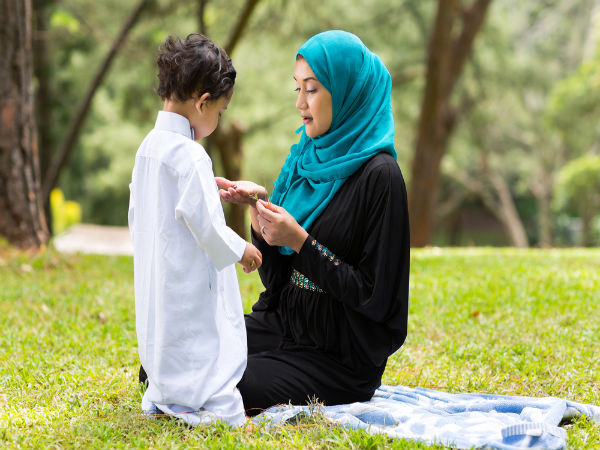Just In
- 7 hrs ago

- 7 hrs ago

- 8 hrs ago

- 9 hrs ago

Don't Miss
- Finance
 1:1 Bonus Share: Why FMCG Stock Hit Upper Circuit Today? Shares Offer Huge Return In 2-Yrs
1:1 Bonus Share: Why FMCG Stock Hit Upper Circuit Today? Shares Offer Huge Return In 2-Yrs - Movies
 Chief Detective 1958 OTT Release Date, Time, Platform: When & Where To Watch? All About Lee Je Hoon’s Show
Chief Detective 1958 OTT Release Date, Time, Platform: When & Where To Watch? All About Lee Je Hoon’s Show - News
 Ram Navami 2024: Check Time For Ram Lalla Surya Tilak In Ayodhya
Ram Navami 2024: Check Time For Ram Lalla Surya Tilak In Ayodhya - Sports
 KKR vs RR, IPL 2024: Fans Question 'Too Casual' Attitude of Riyan Parag On Twitter For Dropping An Easy Catch
KKR vs RR, IPL 2024: Fans Question 'Too Casual' Attitude of Riyan Parag On Twitter For Dropping An Easy Catch - Education
 UPSC CDS 1 Exam on 21 April 2024
UPSC CDS 1 Exam on 21 April 2024 - Automobiles
 Jeep Compass Gets More Powerful 268.3bhp Turbo Petrol Engine – Check Out All The Details Here
Jeep Compass Gets More Powerful 268.3bhp Turbo Petrol Engine – Check Out All The Details Here - Technology
 Redmi Pad SE With 90Hz Display Launching on April 23 in India; Could Be Priced for Less Than Rs 20,000
Redmi Pad SE With 90Hz Display Launching on April 23 in India; Could Be Priced for Less Than Rs 20,000 - Travel
 From Coconut Breaking on Head to Men Dressing as Women: 12 Unique Indian Rituals Explored
From Coconut Breaking on Head to Men Dressing as Women: 12 Unique Indian Rituals Explored
Facts About Male Circumcision In Islam
Male circumcision is one of the most important rites of Islam. It is known as Khitan or Khatna which means removal of the foreskin of the genitals after birth. Though circumcision is a practice in Christian and Jewish communities as well, the practice is widely followed by the Islamic communities throughout the world.
The practice of circumcision has not been specifically mentioned in Quran. According to the oral traditions, Prophet Mohammed was born without a foreskin while others say that his grandfather Abd-al-Muttalib had circumcised him when he was seven days old. Hence, the followers of Prophet circumcised themselves to proclaim their inclusion into the Islamic community.

Circumcision is the part of Fitrah or the five acts of personal cleanliness which includes circumcision, shaving pubic hair, trimming moustache, cutting nails and plucking the hair from one's armpits. Different Islamic schools have different opinions about circumcision. Some have prescribed circumcision as a binding practice for all Muslims while other find it a highly recommended yet a non obligatory practice.
WHY MUSLIM WOMEN OBSERVE PURDAH?
Read on to find out some more interesting facts about male circumcision in Islam.
Shia
Traditions
According
to
the
Shia
traditions,
circumcision
is
an
obligatory
practice.
Boys
have
to
be
circumcised
without
fail
when
they
are
seven
days
old.
It
is
believed
that
urine
of
the
uncircumcised
is
impure
and
prayers
offered
with
unclean
genitals
are
not
accepted
by
God.
If
a
person
becomes
a
Muslim,
he
must
submit
to
circumcision
even
if
he
is
80
years
old.
Time
Of
Circumcision
The
exact
time
of
circumcision
depends
on
the
family,
region
and
culture.
Usually
families
prefer
to
get
their
boys
circumcised
before
the
age
of
ten
or
sometimes
at
birth.
Benefits
Of
Circumcision
The
practice
of
circumcision
has
been
a
matter
of
debates
and
criticism
for
a
long
time.
But
circumcision
is
a
beneficial
practice
in
a
way
because
it
helps
maintain
personal
hygiene.
A
few
benefits
of
circumcision
are:
Protection
against
infections
caused
by
the
tightening
of
foreskin,
prevention
of
the
infections
of
urethra,
prevents
genital
cancer
and
sexually
transmitted
diseases.
Thus, it is a healthy practice which is followed widely in the Islamic communities. In fact, in some countries circumcision is celebrated with great pomp and show.
-
 faith mysticismRamadan 2023: List Of Healthy Food Items To Consume During Suhoor
faith mysticismRamadan 2023: List Of Healthy Food Items To Consume During Suhoor -
 festivalsEid-e-Milad 2020: A Day Dedicated To Prophet Muhammad's Teachings
festivalsEid-e-Milad 2020: A Day Dedicated To Prophet Muhammad's Teachings -
 faith mysticismHow Is Bakr Eid Celebrated?
faith mysticismHow Is Bakr Eid Celebrated? -
 festivalsUnderstanding What Zakat Is & How It Helps Everyone Celebrate Eid
festivalsUnderstanding What Zakat Is & How It Helps Everyone Celebrate Eid -
 festivalsEid-ul-Fitr, 2018
festivalsEid-ul-Fitr, 2018 -
 thoughtImportant Teachings of Islam
thoughtImportant Teachings of Islam -
 festivalsThe Importance Of Ramadan (May 17 To June 16)
festivalsThe Importance Of Ramadan (May 17 To June 16) -
 festivalsEid al-Adha 2021: Important Things To Do On Bakrid
festivalsEid al-Adha 2021: Important Things To Do On Bakrid -
 festivalsEid-Ul-Fitr 2020: How to Celebrate This Holy Occasion
festivalsEid-Ul-Fitr 2020: How to Celebrate This Holy Occasion -
 festivalsSignificance Of Zakat In Islam
festivalsSignificance Of Zakat In Islam -
 lifeFamous Celebs Who Converted Into Islam
lifeFamous Celebs Who Converted Into Islam


 Click it and Unblock the Notifications
Click it and Unblock the Notifications



